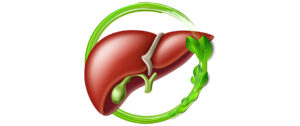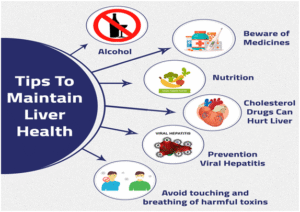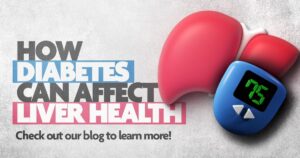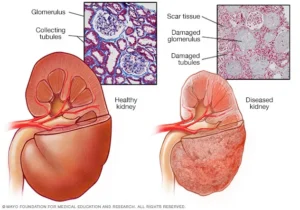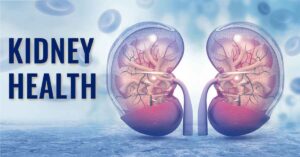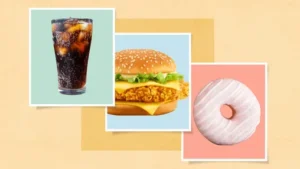The Hidden Risks of Diet Sodas and Processed Foods for Liver Health
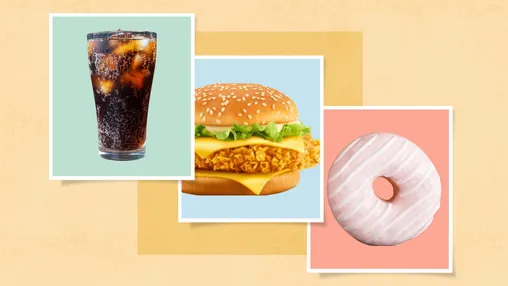
Modern diets often overlook how everyday food and drink choices quietly shape liver health. While diet sodas and ultra-processed foods seem convenient or “healthier” due to low calories, they can place hidden stress on the liver over time. Artificial sweeteners, chemical additives, and high-fructose ingredients force the liver to work harder, promoting fat buildup, inflammation, and reduced detox efficiency. What begins as minor metabolic strain can gradually develop into serious conditions such as fatty liver disease, insulin resistance, and other long-term metabolic disorders.
Key Takeaways On Risks of Diet Sodas and Processed Foods for Liver Health
- The liver processes everything you eat first, making it highly exposed to sugars, fats, and additives.
- Diet sodas may disrupt insulin response, gut bacteria, and increase fatty liver risk even without sugar.
- Ultra-processed foods, especially those high in fructose and HFCS, drive liver fat formation.
- Additives like emulsifiers, nitrites, and phosphates worsen oxidative stress and inflammation.
- Studies link both sugary and diet sodas to higher MASLD and liver-related deaths.
- Replacing processed foods with whole options and choosing water or unsweetened drinks can significantly reduce liver strain.
Why the Liver Is Especially Vulnerable
The liver is a central processing hub. Every nutrient, additive, or chemical from food first passes through it. When the liver faces constant exposure to sugar, fats, and additives, its natural defense and detox systems weaken.
- First-pass metabolism: The liver filters everything coming from the gut, meaning it takes the first hit.
- Fat regulation: It converts sugars into fat when intake is high. Excess fat stays trapped in liver cells.
- Inflammation cycle: Chronic exposure to harmful compounds leads to fat buildup, scarring, and eventually liver disease.
What Counts as Diet Sodas and Processed Foods
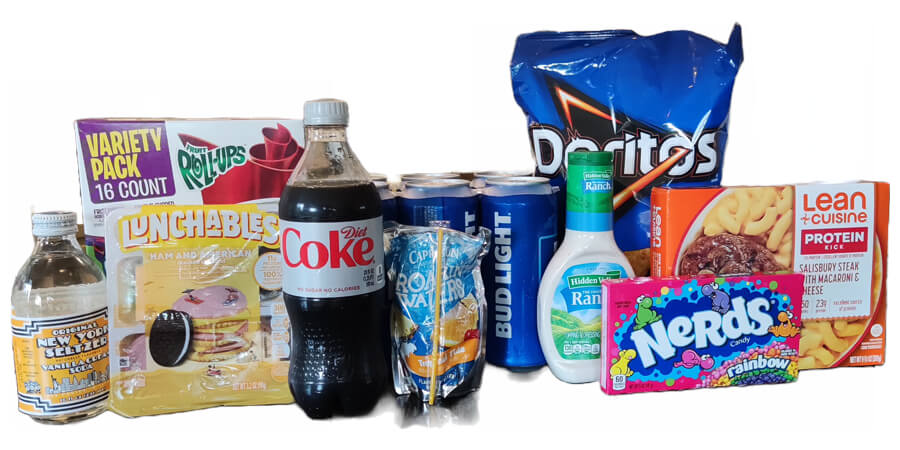
Diet sodas promise flavor without calories. Processed foods promise convenience. Both trade simplicity for chemical complexity.
- Diet sodas use artificial or non-nutritive sweeteners like aspartame, sucralose, and acesulfame-K.
- Processed foods undergo multiple industrial steps. Ultra-processed items (snacks, frozen meals, sweetened cereals) often contain emulsifiers, colorants, and preservatives far removed from any natural ingredient.
How Diet Sodas May Harm the Liver
Diet sodas may not contain sugar, but that doesn’t make them harmless. Their sweeteners and additives can still alter key metabolic and hormonal pathways.
- Sweeteners and Metabolic Confusion: Artificial sweeteners can trick the body into expecting calories that never arrive. This mismatch can disturb glucose and insulin signaling. Over time, that may reduce insulin sensitivity, a known risk factor for fatty liver.
- Microbiome and Gut-Liver Connection: Sweeteners such as sucralose and aspartame can disrupt the gut microbiome. When gut bacteria become imbalanced, intestinal walls weaken. Harmful bacterial byproducts leak into the bloodstream and reach the liver, causing low-grade inflammation.
- Compensatory Eating: People who regularly drink diet sodas often compensate elsewhere. Thinking they “saved” calories, they eat more snacks or high-fat foods later. This nullifies any calorie benefit and adds fat stress to the liver.
- Study Patterns and Limitations: Observational studies link diet soda consumption to higher risk of metabolic and liver disorders, but confounding factors like overall diet quality make results complex. Even so, repeated findings across populations suggest caution is justified.
How Processed Foods Drive Liver Fat
Ultra-processed foods overload the liver primarily through added sugars, particularly fructose. Over time, this constant sugar load forces the liver to store more fat than it can safely process, setting the stage for metabolic disorders. Even when calorie intake seems normal, the type of sugar matters far more than the amount.
- Fructose and De Novo Fat Formation:Fructose is metabolized almost entirely by the liver. When intake is high, it converts excess fructose into triglycerides a process called de novo lipogenesis. These fats can accumulate inside liver cells and impair function.
- Why Fructose Is Worse Than Glucose: Unlike glucose, fructose bypasses the body’s energy checkpoints. It enters liver pathways directly, accelerating fat buildup and oxidative stress. This contributes to insulin resistance and inflammation.
Key Mechanisms in Processed Foods
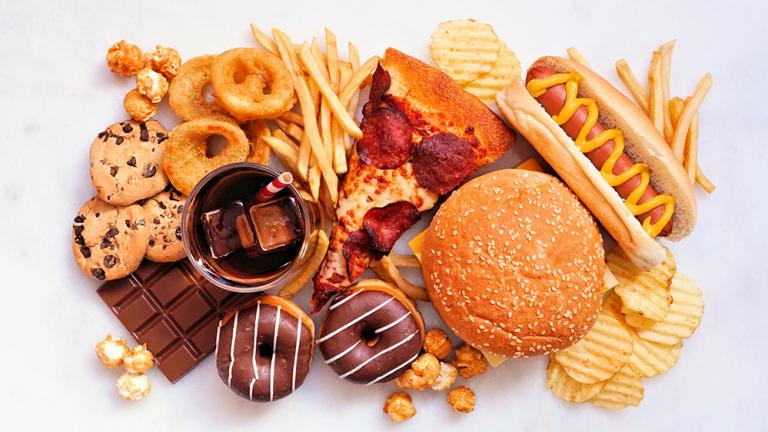
Processed foods rich in HFCS and hidden sugars overload the liver with fructose and glucose. The liver can only handle so much fat export, so surplus fat stays in the liver or leaks into other tissues, driving fat accumulation and metabolic dysfunction.
- High-Fructose Corn Syrup (HFCS): HFCS is a sweetener commonly added to sodas, baked goods, sauces, and cereals. Unlike regular sugar, HFCS contains a higher proportion of fructose. Fructose is metabolized almost exclusively by the liver. When consumed in excess, it overwhelms the liver’s normal metabolic pathways, leading to rapid fat accumulation within liver cells (hepatic steatosis). Over time, this can contribute to non-alcoholic fatty liver disease (NAFLD), insulin resistance, and chronic inflammation.
- Hidden Sugars: Processed foods often include sugars under names like “evaporated cane juice,” “dextrose,” “maltose,” or “sucrose.” While they may sound natural or benign, these are still added sugars that behave like HFCS in the body. They spike blood sugar and insulin levels, providing excess calories that the liver converts into fat. Many people unknowingly consume high amounts of these hidden sugars, which steadily increases liver fat and metabolic stress.
- Limited Fat Export: The liver can package fat into particles called lipoproteins (mainly VLDL) and release them into the bloodstream. However, this export capacity is limited. When sugar intake is high and fat production exceeds what the liver can export, excess fat accumulates in liver cells. Some of it can spill into surrounding tissues, leading to visceral fat, systemic inflammation, and increased risk of metabolic diseases.
Additives That Worsen Liver Stress
It’s not only sugar. Additives in processed foods can also trigger inflammation and liver stress. These substances often appear harmless on labels, but over time, their cumulative effect can weaken liver defenses and disrupt normal detox processes.
Common offenders include:
- Emulsifiers (e.g., carboxymethylcellulose, polysorbate-80): These disrupt the gut barrier, allowing toxins into the bloodstream.
- Nitrites and nitrosamines: Common in processed meats, they can form carcinogenic compounds that strain liver detox pathways.
- Phosphates and caramel coloring (4-MEI): Found in cola drinks, these may raise oxidative stress markers in the liver.
Evidence Linking Ultra-Processed Foods to Liver Disease
Large population studies increasingly show that people consuming the most ultra-processed foods (UPFs) have higher rates of non-alcoholic fatty liver disease (NAFLD) and liver fibrosis.
Highlights from current data:
- Meta-analyses show each 10% increase in UPF intake raises liver disease risk significantly.
- Obesity and insulin resistance explain part of this, but not all. Additives and poor nutrient quality contribute independently.
- High-UPF diets are common in urban and low-income populations, where convenience often outweighs nutrition.
New Findings on Diet Sodas and Liver Outcomes
In recent years, researchers have started looking closely at how diet sodas affect the liver, not just overall health. Large population studies now suggest that even drinks marketed as “zero sugar” may still harm the liver when consumed frequently.
- Frequent intake increases risk: A major analysis from the UK Biobank found that people drinking more than one can of diet soda per day had a significantly higher risk of developing metabolic-associated steatotic liver disease (MASLD).
- Link to liver-related deaths: The same study showed that these beverages were also associated with increased liver-related mortality, even after accounting for weight, age, and lifestyle factors.
- Risk remains after adjustments: Researchers controlled for obesity, smoking, and calorie intake, yet the association persisted, suggesting effects beyond simple calorie balance.
- Better beverage swaps matter: When participants replaced diet sodas with water, unsweetened tea, or black coffee, their liver risk dropped noticeably.
Who Faces the Highest Risk
Not everyone reacts the same way to processed foods or diet sodas. Some groups are biologically more prone to liver stress because their metabolism or lifestyle already challenges liver function.
- People with insulin resistance or type 2 diabetes
- Individuals with abdominal obesity or PCOS
- Those with sleep disorders or shift work disrupting metabolic rhythms
- Adolescents and young adults consuming large amounts of fast food and packaged snacks
Smarter Swaps and Label Awareness
You can protect your liver by making small but consistent adjustments. The goal isn’t perfection, but awareness and understanding what’s in your food and drink helps you make better choices every day.
1. Smarter Swaps
Making small, intentional substitutions in your diet can drastically reduce added sugar and unhealthy fat intake:
- Beverages: Swap soda, energy drinks, or sweetened teas for water, sparkling water with fruit, or unsweetened herbal teas.
- Breakfast: Replace sugary cereals or pastries with oatmeal, whole-grain toast, or yogurt with fresh fruit.
- Snacks: Choose nuts, seeds, fruit, or air-popped popcorn instead of candy, cookies, or chips.
- Condiments: Use mustard, hummus, or avocado instead of sugary ketchup, BBQ sauce, or creamy dressings.
2. Label Awareness
Processed foods often hide sugars and unhealthy additives under unfamiliar names. Reading labels carefully is crucial:
- Check for Added Sugars: Look for terms like HFCS, evaporated cane juice, maltose, dextrose, sucrose, corn syrup, or syrup solids.
- Look at Total Carbs vs. Fiber: High-fiber foods slow sugar absorption and reduce liver fat accumulation.
- Watch Serving Sizes: Labels often understate portions; a “small” serving can still contain a lot of sugar.
- Ingredient Order Matters: Ingredients are listed by weight. If sugar or HFCS is near the top, the product is very high in sugar.
- leading labels like “light,” “low fat,” or “zero sugar” ; they often hide other additives.
What We Still Don’t Know
Although research on diet sodas and processed foods has grown rapidly, scientists still have many unanswered questions. Much of the existing data comes from observational studies, which can show patterns but not prove cause and effect. More precise, long-term research is essential to truly understand how these products affect the liver over time.
- Causality: We need long-term human trials to confirm whether artificial sweeteners directly damage the liver or simply correlate with other unhealthy habits.
- Differences among sweeteners: Compounds like stevia and monk fruit appear less harmful, but their long-term safety data remain limited.
- Individual microbiome response: Gut bacteria vary widely among people, which may explain why some develop inflammation or fat buildup while others do not.
- Combined effects: It’s still unclear how sweeteners interact with other additives, preservatives, and emulsifiers already present in processed foods.
A Simple One-Week Beverage and Snack Guide
Here’s a realistic 7-day example to help you start reducing processed load:
| Day | Beverages | Snacks |
| Monday | Water, unsweetened iced tea | Fresh fruit, handful of nuts |
| Tuesday | Sparkling water with lime | Yogurt with berries |
| Wednesday | Herbal tea (mint or chamomile) | Veggie sticks with hummus |
| Thursday | Black coffee or green tea | Whole-grain crackers with cheese |
| Friday | Infused water (lemon-mint) | Apple slices with peanut butter |
| Saturday | Mineral water | Boiled egg, small handful of almonds |
| Sunday | Rooibos or ginger tea | Popcorn (plain) or fruit |
Do, Limit, Avoid Checklist
Making lasting dietary changes doesn’t have to be complicated. This simple checklist helps you prioritize habits that protect your liver and reduce daily exposure to harmful additives.
- Do: Focus on whole foods, hydrate with water, choose natural teas, and cook simple meals.
- Limit: Processed snacks, artificially sweetened drinks, frozen convenience meals.
- Avoid: Daily consumption of diet sodas, fast foods, or foods high in hidden sugars and emulsifiers.
Conclusion
Protecting your liver starts with small, consistent choices. While diet sodas and ultra-processed foods may seem harmless or even “health-conscious,” their long-term impact tells a different story. Artificial sweeteners, hidden sugars, and chemical additives challenge the liver’s natural ability to metabolize and detoxify. Over time, these daily exposures can trigger fat accumulation, inflammation, and oxidative stress, paving the way for metabolic-associated liver disease. The good news is that prevention is simple: replace sweetened or processed drinks with water, herbal tea, or black coffee; choose fresh, minimally processed meals; and read labels carefully. A few mindful swaps can protect your liver, stabilize metabolism, and improve overall energy and wellbeing.
FAQs
- Are diet sodas safer for the liver than regular sodas?
Not necessarily. They remove sugar but may still affect metabolism and the gut, leading to similar liver stress in high amounts. - Which sweeteners are most concerning?
Aspartame, sucralose, and acesulfame-K appear most linked to metabolic changes. Stevia and monk fruit may be safer, but evidence is limited. - How do emulsifiers harm liver health?
They thin the protective gut lining, allowing inflammatory compounds to enter circulation and reach the liver. - Is one diet soda per day too much?
Evidence suggests risk rises above one can daily. Occasional use is less concerning but still best minimized. - Can switching to water actually help the liver?
Yes. Studies show substituting sugary or diet sodas with water reduces liver fat and inflammation markers over time. - Are processed meats particularly harmful?
Yes. Their nitrite and nitrosamine content can produce toxins that stress the liver’s detox systems. - What are easy first steps to reduce risk?
Start by replacing one daily soda with water or tea and swapping packaged snacks for whole foods. - Do natural sweeteners count as processed?
Most commercial “natural” sweeteners still undergo refining. Use them sparingly and prioritize whole fruits for sweetness. - Can children drink diet sodas safely?
It’s better they don’t. Children’s metabolic systems are still developing and may react more strongly to sweeteners. - How long before liver function improves after changing diet?
Positive changes can appear within weeks. Reduced processed intake improves enzyme levels and reduces fat accumulation.
Aubrey Carson is an RDN with 9 years across hospital, outpatient, and private practice settings. They earned an MS in Clinical Nutrition from Tufts University – Friedman School (2016) and completed a Dietetic Internship at Mayo Clinic. Aubrey specializes in micronutrient assessment, evidence-based supplementation, and patient education. Their work includes CE presentations for the Academy of Nutrition and Dietetics and collaborations with Mass General Brigham on nutrition education resources.


